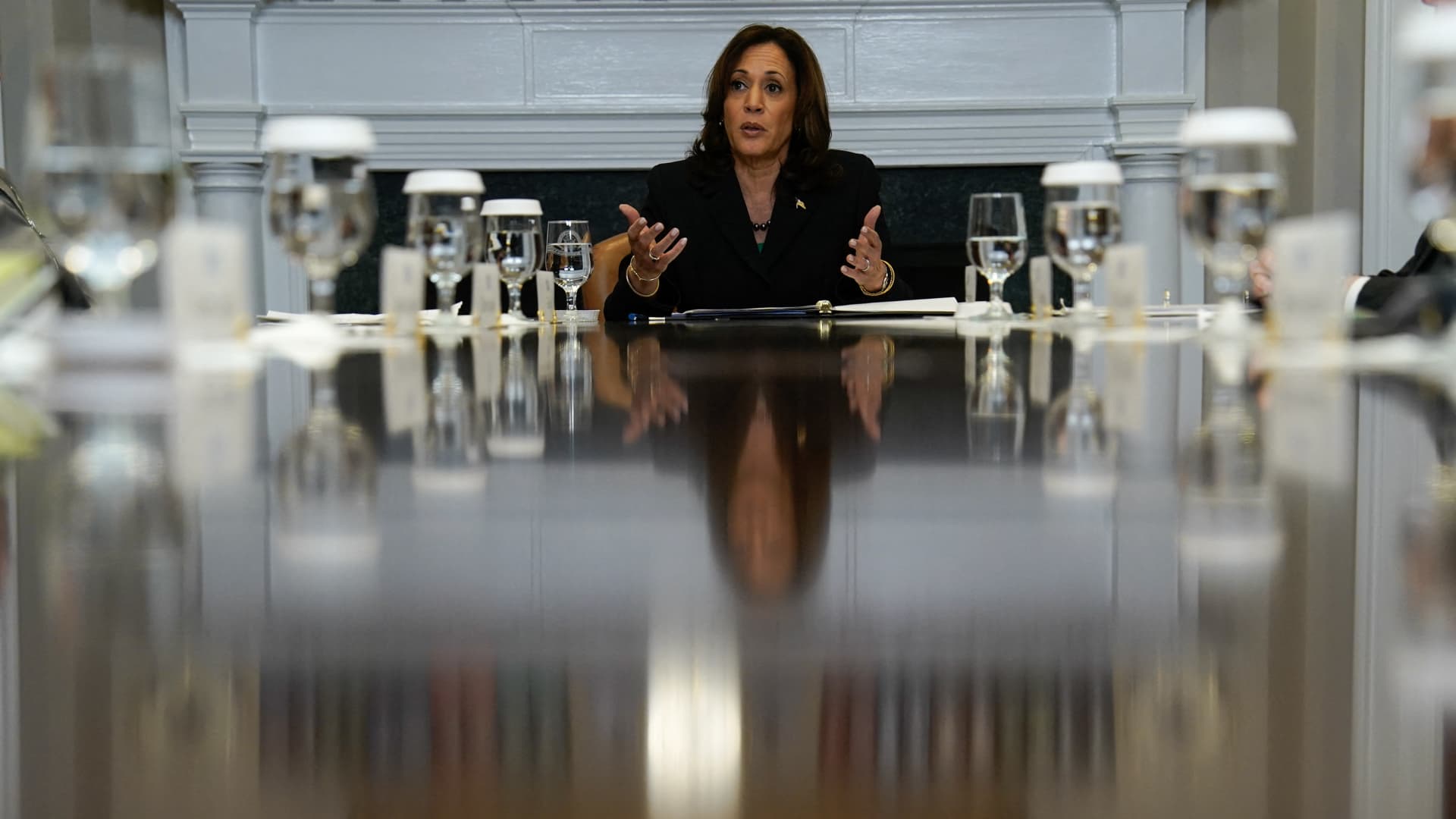Harris the pro-cannabis candidate. The industry isn’t convinced
- December 21, 2024
- Category: Blockchain

Vice President Kamala Harris further positioned herself as a pro-cannabis candidate on Monday in an interview with sports and culture podcast “All the Smoke” — but industry leaders aren’t convinced her administration would lead to the reform she has promised.
“I just think we have come to a point where we have to understand that we need to legalize it and stop criminalizing this behavior,” Harris said during the interview.
This was the first time she has spoken on the issue publicly since she became the Democratic presidential nominee.
“I am encouraged by Vice President Harris’s support for cannabis legalization; however, we need real action, not just rhetoric,” said Jason Wild, executive chairman of Toronto Stock Exchange-listed cannabis company TerrAscend , which has operations in the United States. “I hope this time around, these campaign promises aren’t just soundbites but will lead to tangible change.”
Four years earlier, as a senator and candidate for president in 2020, Harris advocated for and introduced legislation to decriminalize and tax cannabis at the federal level. Biden also tapped her as vice president to lead discussions on criminal justice and cannabis reform as his administration worked to reschedule cannabis.
But the process has moved slowly, said Brady Cobb, founder of Florida-based Sunburn Cannabis.
“I would question the statement that Harris has been the more pro-cannabis candidate,” Cobb said. “While rescheduling has advanced, and if adopted it would mark the largest incremental step forward in federal cannabis reform to date, the fact remains that it is not completed.”
The Biden administration said this spring that it would move to ease restrictions by reclassifying cannabis from the strictest Schedule I to the less stringent Schedule III, which would open the door for studies and research, as well as larger sales and distribution of medical supply in states where it is legal.
In July, the public comment period on cannabis reclassification ended with a significant 43,000 comments submitted for review. In August, the Drug Enforcement Administration further delayed reclassification further by scheduling a hearing on the proposed rule change for Dec. 2, after the election.
Cannabis investors are eager for more details on future proposals.
“We would welcome to hear more from the Harris campaign on how they envision reform on this issue, as several paths need to be improved, including banking and capital markets reform,” said Emily Paxhia, Poseidon Investment Management co-founder.
The cannabis industry is also skeptical about former President Donald Trump ‘s support for legalization.
“Trump did not move the ball on cannabis either during his time as president, so they [Trump and Harris] are very much equal on this issue from my vantage point,” Cobb said.
In late August, Trump departed from his usual stance that cannabis legalization should be left up to each individual state. He said that, if elected, his administration “will continue to focus on research to unlock the medical uses of marijuana to a Schedule 3 drug, and work with Congress to pass common sense laws, including safe banking for state authorized companies, and supporting states rights to pass marijuana laws.”
He also said he plans to vote yes on a ballot measure in Florida to legalize the use of recreational cannabis.
The AdvisorShares Pure US Cannabis ETF , which tracks U.S. companies with cannabis exposure, has risen 12% since Trump made those comments a month ago, as investors see bipartisan support for legalization as a significant tailwind.
“The fact that both Republican and Democratic Presidential candidates now support federal cannabis reform increases the probability that federal cannabis legalization is simply a matter of time,” said Bernstein analyst Nadine Sarwat, in a recent note.
However, while candidate support has boosted the market, Bernstein also noted that growth has been stagnant in the category as it faces macro headwinds.
“Despite all the headlines regarding potential federal reform, state-level sales performance is sobering,” Sarwat said.

